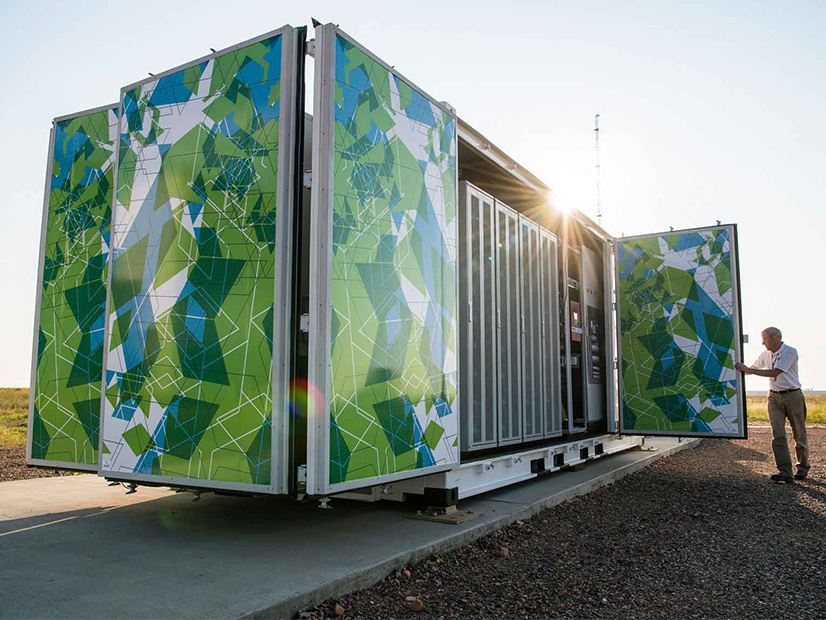FERC accepted ISO-NE’s third compliance filing for Order 2222, ruling that the RTO’s proposal does not pose prohibitive barriers to market participation for distributed energy resource aggregations.
FERC last week accepted ISO-NE’s third compliance filing for Order 2222, ruling that the RTO’s proposal does not pose prohibitive barriers to market participation for distributed energy resource aggregations (DERAs) (ER22-983-004).
The commission directed ISO-NE to make an additional filing within 90 days to address outstanding issues related to its metering proposal.
At the beginning of March, the commission accepted and rejected parts of ISO-NE’s first 2222 filing, prompting a series of compliance filings from the RTO. (See FERC Gives ISO-NE Homework on Order 2222.) The second and fourth filings that followed went uncontested and were accepted by FERC in late October (ER22-983-003 and ER22-983-005).
The third filing focused on metering rules, market participation models, small utility opt-in requirements and coordination among the RTO, aggregators and utilities.
The filing was challenged in May by Advanced Energy United, PowerOptions and the Solar Energy Industries Association. The groups argued that the metering requirements in ISO-NE’s proposal are prohibitive to DERAs.
“ISO-NE has failed to make any adjustments to facilitate participation by DERs located behind a customer meter, leaving in place a barrier recognized by the commission in its compliance order, and has failed to justify the metering and telemetry provisions that underlie this barrier as directed by the commission,” the groups wrote. “The impacts of ISO-NE’s failure to incorporate behind-the-meter DERs into wholesale markets will only grow as penetration increases.”
For metering DERs, ISO-NE provided three options: retail delivery point metering, submetering with reconstitution and parallel metering.
The organizations said submetering with reconstitution and parallel metering are not viable options for most DERs, and metering resources at the point of interconnection would prevent those behind the meter from responding to price signals during times of peak demand. The organizations said this would “limit ISO-NE’s visibility into their availability, fail to optimize demand flexibility and undermine competition.”
ISO-NE wrote in its compliance that these configurations “minimize overall costs, are consistent with the metering requirements of all non-demand response resources and loads in New England, and ensure a just and reasonable allocation of wholesale power costs.”
FERC sided with ISO-NE, writing that its proposed options are necessary to prevent double counting.
“No party has identified less burdensome alternative metering configuration options that would also address the need to avoid double counting and inequitable cost shifting,” FERC wrote. “However, we encourage ISO-NE to continue to work with its stakeholders to consider additional metering options in the future, including for DERAs to utilize alternative submetering configurations.”
FERC gave ISO-NE 90 days to submit an additional filing that identifies the DERA as the entity responsible for submitting meter data and specifying a deadline for submitting data.
Also at issue was ISO-NE’s rule changes to incorporate DERAs into its participation models used in the RTO’s energy and ancillary services markets. ISO-NE’s initial filing modified aspects of the RTO’s five existing models, while adding two models specific to DERAs.
In March, FERC ruled that ISO-NE “failed to demonstrate that its proposed energy and ancillary services market participation models for [DERAs] accommodate the physical and operational characteristics of behind-the-meter [DERs], because behind-the-meter DERs participating under those participation models may be unable to provide all services that they are technically capable of providing through aggregation.”
The commission’s ruling in March, along with the protest comments, specifically took issue with ISO-NE’s existing Binary Storage Facility and Continuous Storage Facility participation models. In its ruling last week, FERC accepted ISO-NE’s clarifications and revisions, agreeing that the requirements of the models apply to all resources looking to participate.
In a statement to RTO Insider, an ISO-NE spokesperson said the RTO is pleased with the ruling, adding that the changes will “ensure distributed energy resource aggregations are metered accurately and the services they provide are not double counted.”
Sam Ressin of Advanced Energy United said the organization is disappointed with the ruling and “concerned that ISO-NE’s proposal, once implemented, will result in barriers to participation that will prevent most behind-the-meter DERs from contributing to the reliability and affordability of New England’s electric grid.”
In a concurring statement, Commissioner Allison Clements expressed her disappointment with ISO-NE for its decision not to use the filing to enable the full range of DR benefits from DERs.
“In essence, ISO New England chose to do the minimum required by law,” she wrote, noting that the RTO was clearly permitted by FERC to establish alternative DR metering options. “Rather than examining the full suite of options that may facilitate participation of DERs in its markets, ISO New England focused its further compliance filing solely on non-demand response resources.”
Clements added that all supply and demand resources should be considered as options to improve reliability in the region, saying it is “lamentable that ISO New England has failed to examine this path for facilitating more robust resource participation.”
Commissioner Mark Christie dissented with the order, citing the comments he issued in his previous dissent on FERC’s response to ISO-NE’s Order 2222 rehearing request. Christie had said Order 2222 created “nothing short of an incomprehensible quagmire bearing a substantial price tag.” (See FERC Responds to ISO-NE Rehearing Request on Order 2222.)




